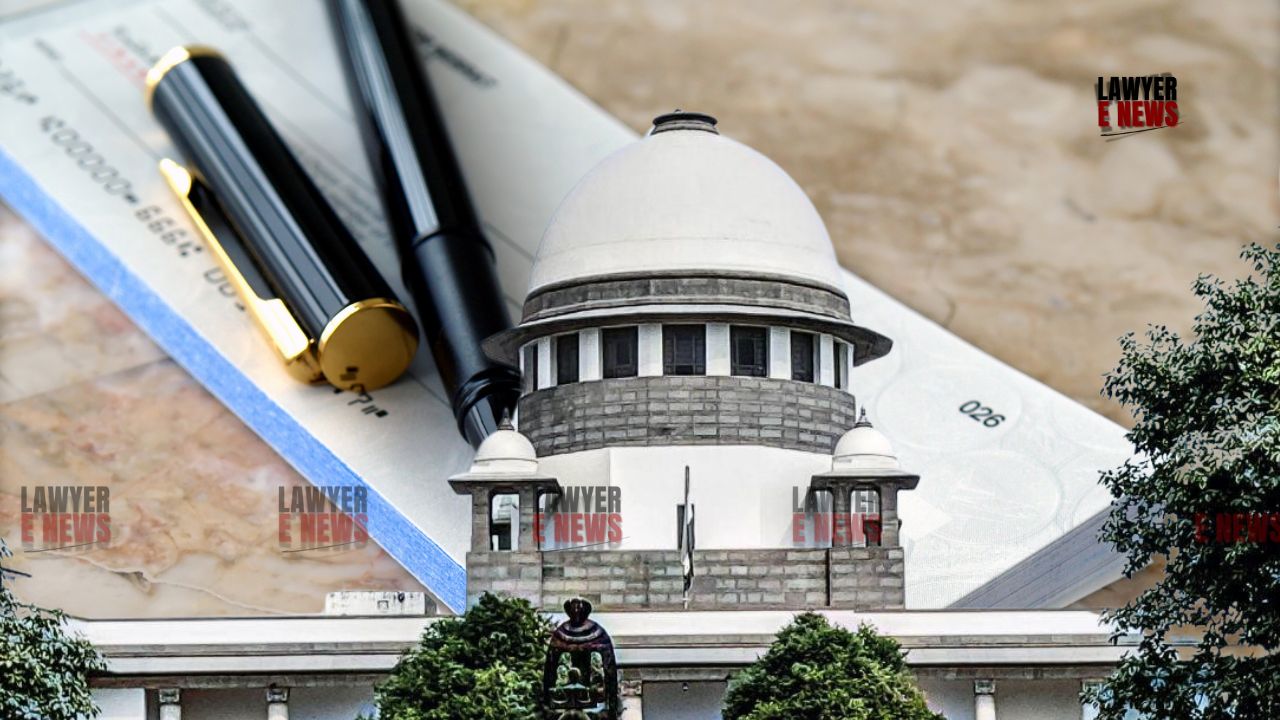-
by Admin
15 February 2026 2:36 AM



High Court’s decision affirmed; only the drawer is responsible under Section 143A of the NI Act. In a significant judgment, the Supreme Court of India has ruled that authorized signatories of cheques cannot be held liable for interim compensation under Section 143A of the Negotiable Instruments Act, 1881 (NI Act). The decision came while affirming the Bombay High Court’s ruling, which had set aside the order of the Judicial Magistrate directing the directors of Cane Agro Energy (India) Ltd. To pay interim compensation. The Supreme Court emphasized that the liability for such compensation lies solely with the drawer of the cheque, not the signatories authorized by the company.
The case revolves around Shri Gurudatta Sugars Marketing Pvt. Ltd. (Appellant) and the directors of Cane Agro Energy (India) Ltd. (Respondents). The appellant entered into agreements with Cane for the supply of sugar, making advance payments totaling Rs.63.46 crores. When Cane failed to supply the sugar and refund the advance, it issued two cheques amounting to Rs.51.64 crores, which were dishonored due to insufficient funds. The appellant filed a complaint under Section 138 of the NI Act, leading to the Judicial Magistrate’s order for interim compensation. The respondents challenged this order, leading to the current appeals.
The Supreme Court upheld the High Court’s interpretation that the “drawer” refers explicitly to the issuer of the cheque. Under Section 7 of the NI Act, the drawer is the person who creates the cheque, and the drawee is the entity directed to pay. The Court clarified that the authorized signatories, while acting on behalf of the company, do not assume the company’s legal identity.
Addressing the principle of vicarious liability, the Court noted that individuals are not typically held criminally liable for acts committed by others unless specified by law. Section 141 of the NI Act extends liability to company officers for cheque dishonor, but this does not transform authorized signatories into drawers for the purposes of Section 143A. The liability under Section 138 remains with the drawer, underscoring the drawer’s responsibility for maintaining sufficient funds.
The Court emphasized that when statutory language is clear and unambiguous, it must be given its natural and ordinary meaning. The legislative intent behind Section 143A was to provide interim relief to payees by holding the drawer accountable, not the authorized signatories. The Court rejected a broader interpretation that would unjustly extend liability beyond the statutory text.
Justice Vikram Nath remarked, “The term ‘drawer’ in Section 143A has a clear and unambiguous meaning, referring specifically to the person who issues the cheque. Extending this liability to authorized signatories would be contrary to the statutory language and legislative intent.”
The Supreme Court’s judgment reaffirms the clear distinction between the legal entities and their authorized representatives under the NI Act. By limiting the definition of ‘drawer’ to the issuer of the cheque, the Court has maintained consistency in the application of the law, ensuring that liability is assigned appropriately. This decision underscores the importance of adhering to statutory language and legislative intent, providing clarity for future cases involving cheque dishonor.
Date of Decision: July 24, 2024
Shri Gurudatta Sugars Marketing Pvt. Ltd. Vs. Prithviraj Sayajirao Deshmukh & Ors.
